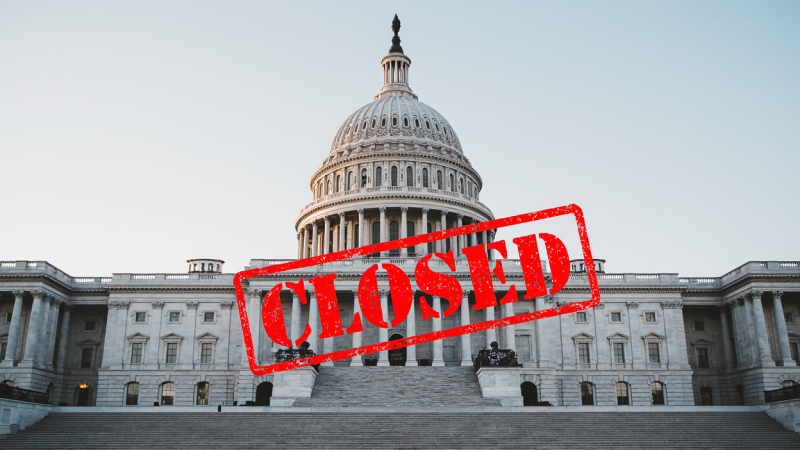Are We Hours From a Government Shutdown? Rep William Timmons breaks it down.
Are We Hours From a Government Shutdown? What Actually Closes, Who Still Gets Paid, and How It Hits You (Feat. Rep. William Timmons)
If Congress misses the midnight deadline, parts of the federal government will shut down. Here’s a clear, no-spin explainer of what usually keeps running, what closes first, and who feels it fastest—plus key takeaways from my interview with Rep. William Timmons on what Congress is fighting over and what a shutdown means for you on the ground.
What keeps running in a shutdown
-
Social Security & Medicare benefits keep going out. These are funded by trust funds and continue even if annual appropriations lapse.
-
U.S. Postal Service keeps delivering mail; USPS operates on its own revenues.
-
Air travel continues: air traffic controllers and TSA are “excepted” personnel and work through a lapse (with possible delays if staffing strains).
-
Core defense and national security functions continue; DoD follows contingency plans to maintain protection of life and property.
-
Programs funded by fees (some passport/consular services, certain permits, etc.) may operate if their fee accounts have balances; availability can vary by agency and location.
What likely pauses or gets limited
-
Many “non-excepted” federal employees are furloughed (told not to work) until funding resumes; others are required to work but may see pay delayed until Congress acts.
-
National parks/monuments often curtail services or close visitor centers; the exact posture can change by administration and park.
-
Small Business Administration & some housing programs can see application processing slow or pause if reliant on annual appropriations.
-
Federal courts typically stay open for a short period using existing balances, then may scale back if the lapse persists.
Bottom line: Essential services tied to safety, security, and the protection of life/property continue; everyday services that rely on annual appropriations are where you’ll feel friction first.
What Rep. William Timmons told us
In our conversation, Rep. Timmons emphasized three practical points for families, service members, and businesses:
-
Checks vs. services: Benefit checks (like Social Security) should continue, but you may see longer wait times for certain federal customer-service lines and processing.
-
Military & federal workers: “Excepted” personnel still report to work; pay can be delayed until Congress passes funding. Back pay is typically approved after a lapse, but cash-flow pain is real for households living paycheck-to-paycheck.
-
Small contractors feel it early: If you do federal contract work that depends on day-to-day approvals, cash flow and project timelines can slip quickly during a lapse.
(Watch the full interview here to hear it in his own words:
Why we’re here (the fight in one paragraph)
House Republicans say they passed a short-term “clean” CR to keep the lights on while debates continue; Senate Democrats are pushing changes Republicans argue go beyond stopgap funding. The political blame game aside, the practical question for families is simple: will Congress pass any bridge bill before midnight? If yes, most pain is avoided. If not, expect service slowdowns and paycheck timing issues for affected workers until a deal lands. (For a neutral primer on what lapses mean across agencies, see the CRS and agency contingency plan hubs.) U.S. Department of the Interior
Quick answers to FAQs
Do I still get my Social Security check? Yes. Payments continue.
Will my mail come? Yes. USPS operates as normal.
Is it safe to fly? Yes. TSA and air traffic control continue, but lines may be longer.
Are national parks open? Expect reduced services or closures depending on the park and the administration’s approach.
What about the military? Defense operations continue; some civilians are furloughed; required personnel work through the lapse. Pay may be delayed until funding resumes.
How to prepare if a lapse happens
-
Build a short runway: If you’re a federal employee/contractor, plan for a delayed paycheck scenario.
-
Travel earlier: If flying, arrive early to cushion against potential screening delays.
-
Check park/campground status: Look up your specific location’s updates before you go.
-
Small businesses with federal contracts: Communicate with your contracting officer about deliverables, invoicing, and stop-work guidance during a lapse.
#GovernmentShutdown #SocialSecurity #MilitaryPay #USPS #TSA #NationalParks #FederalEmployees #SmallBusiness #Congress #WilliamTimmons
Listen to the full Just the Truth Podcast:





Leave a Reply
Want to join the discussion?Feel free to contribute!